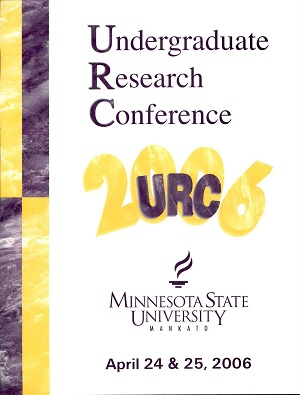The Impact of Single Women and the Early Modern Economy
Location
CSU 284
Start Date
24-4-2006 3:15 PM
End Date
24-4-2006 5:00 PM
Student's Major
History
Student's College
Social and Behavioral Sciences
Mentor's Name
Christopher Corley
Mentor's Department
History
Mentor's College
Social and Behavioral Sciences
Description
Historians have shown that women are generally more accepted as workers within thriving economic environments. This is particularly true of eighteenth-century Europe, a time of economic transition, expansion and social flux. Historians have indicated a rise of never-married women in eighteenth century towns and cities, but our knowledge of women's specific roles and contributions during this time of economic expansion remains slim.
My research examined and compared tax records from the parish of St. Philibert in Dijon, France between 1730 and 1750. An examination of the tax records allows historians one indication of the overall economic contribution of individual householders within specific neighborhoods. By comparing the sheer numbers of single and widowed women, and their professions, tax assessments, and living arrangements, historians can suggest a pattern of women's economic involvement over time. This research serves not only as a way to verify and delineate the suggestions of other historians about the potential roles of women in the eighteenth-century urban economies, but also provides an opportunity to discover what life was like for the single, never-married, and widowed women of early modem Dijon.
The Impact of Single Women and the Early Modern Economy
CSU 284
Historians have shown that women are generally more accepted as workers within thriving economic environments. This is particularly true of eighteenth-century Europe, a time of economic transition, expansion and social flux. Historians have indicated a rise of never-married women in eighteenth century towns and cities, but our knowledge of women's specific roles and contributions during this time of economic expansion remains slim.
My research examined and compared tax records from the parish of St. Philibert in Dijon, France between 1730 and 1750. An examination of the tax records allows historians one indication of the overall economic contribution of individual householders within specific neighborhoods. By comparing the sheer numbers of single and widowed women, and their professions, tax assessments, and living arrangements, historians can suggest a pattern of women's economic involvement over time. This research serves not only as a way to verify and delineate the suggestions of other historians about the potential roles of women in the eighteenth-century urban economies, but also provides an opportunity to discover what life was like for the single, never-married, and widowed women of early modem Dijon.
Recommended Citation
Heussler, Bridget. "The Impact of Single Women and the Early Modern Economy." Undergraduate Research Symposium, Mankato, MN, April 24, 2006.
https://cornerstone.lib.mnsu.edu/urs/2006/oral-session-I/2




